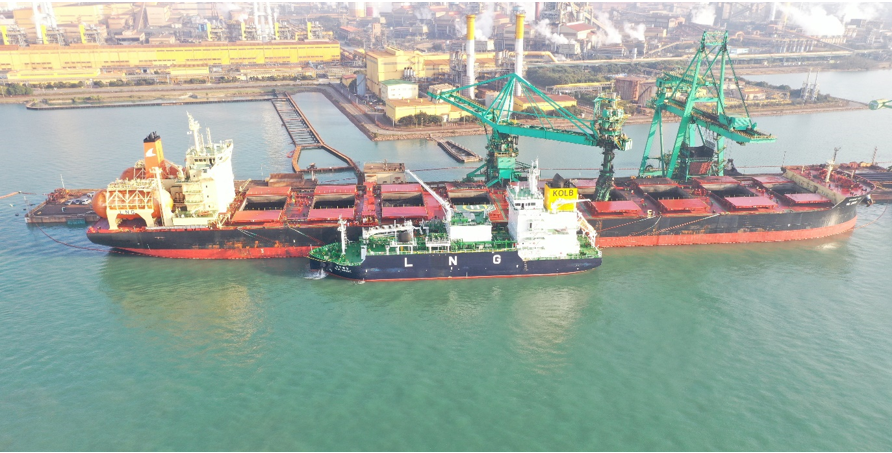
South Korea successfully carried out simultaneous ship-to-ship LNG bunkering operations on a coal-carrying bulk carrier at the POSCO raw material dock in Gwanyang port on October 28. This marks the first time such operations have been conducted in Korea’s trading ports, demonstrating the nation’s commitment to advancing its capabilities in LNG bunkering.
While South Korea is renowned for its world-class shipbuilding capabilities for LNG carriers and bunkering vessels, concerns regarding safety had previously deterred ship-to-ship LNG bunkering at loading docks. In response, the Ministry of Oceans and Fisheries of Korea (MOF) launched a plan this year to promote LNG bunkering operations. This initiative includes providing port facility fee discounts and supporting R&D projects, all aimed at ensuring the seamless execution of simultaneous LNG bunkering operations.
Key players in this achievement include the Korean Register (KR) and the Korea Research Institute of Ships & Ocean Engineering (KRISO). They have been actively engaged in research and development efforts, with a focus on enhancing LNG bunkering safety technology. This includes the development of standard operating procedures for LNG bunkering. Additionally, KR plays a crucial role as a member of an advisory group established by the MOF, along with other specialized organizations. This group works to streamline administrative procedures related to safety regulations, ultimately reducing obstacles and improving efficiency.
A KR official emphasized the significance of this milestone, stating, “While LNG has been widely chosen as an alternative fuel, this is a significant step forward in the operation of LNG bunkering. We will continue to do our best to support the safe and successful implementation of simultaneous LNG bunkering operations.”
Looking ahead, a MOF official outlined ambitious plans to expand bunkering operations with alternative marine fuels like LNG and methanol at major Korean ports, including the Port of Busan. The overarching goal is to establish Korea as a primary bunkering hub for alternative marine fuels. This will be achieved by easing bunkering safety regulations and establishing a sustainable supply chain, guided by specialized organizations such as KR.
In conclusion, South Korea’s successful simultaneous LNG bunkering operations represent a significant leap forward in the nation’s maritime capabilities. With a focus on safety, collaboration, and a clear vision for the future, Korea is poised to become a leading player in the global LNG bunkering industry.


